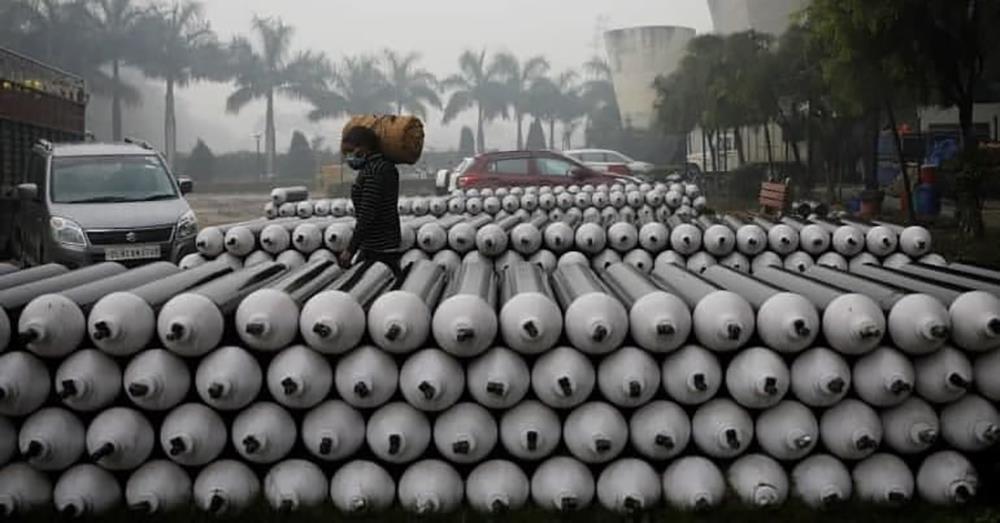NEW DELHI, Jan 7 (Aljazeera) - India has reported 117,100 new COVID-19 cases, the most since early June of last year, as the Omicron variant overtakes Delta in the cities.
The health ministry on Friday also reported 302 new deaths, taking the total to 483,178. Total infections stand at 35.23 million.
Case numbers have yet to match the enormous figures seen during the brutal second wave of the pandemic last year when thousands died each day and crematoriums maintained round-the-clock pyres for mass cremation of victims.
But daily infections have nearly tripled over two days this week, a surge driven by the highly contagious Omicron variant of coronavirus that some experts worry could again see the country’s hospitals overwhelmed.
Haunted by the spectre of the second wave, India is bracing for a deluge of COVID-19 cases, with authorities in several cities bringing in restrictions in a bid to keep infections in check.
An overnight curfew has been imposed in the capital New Delhi and weekend movement restrictions will begin on Friday evening, with all non-essential workers asked to stay home.
Tech hub Bengaluru has also declared a weekend curfew, while the sprawling financial centre Mumbai has introduced a night curfew.
“Even a small percentage of a large number of cases translates to a large number in absolute terms,” Gautam Menon, a professor at India’s Ashoka University who has worked on COVID-19 infection modelling, told the AFP news agency.
“This could potentially stress out healthcare systems to levels comparable to or worse than the second wave.”
Doctors and nurses who spoke to AFP have so far been optimistic, with fewer severe cases among those patients admitted to hospital – and with the benefit of experience.
“Last year, we didn’t know what exactly we were dealing with. I think now, mentally, it’s a little better,” one front-line worker at a New Delhi hospital said.
Suresh Kumar, director of Lok Nayak Jai Prakash Hospital in the capital, where cases have quadrupled from a handful at the start of the week to 20, said the rise was “not a cause for panic”.
Prime Minister Narendra Modi’s administration has so far shied away from the drastic nationwide lockdown introduced during last year’s catastrophic outbreak. But local officials have watched the sharply rising case numbers with alarm.
Earlier, virus lockdowns were a hammer blow to the Indian economy, and many are worried about the financial effect of new restrictions.
India appears better placed to weather Omicron than it was ahead of the calamitous Delta wave it suffered beginning last March when more than 200,000 people died in a matter of weeks.
Back then, hospitals ran out of oxygen and patients desperately scrambled to source medicine after a run on pharmacies.
In the time since, Indian health workers have injected nearly 1.5 billion vaccine doses, with government data showing almost two-thirds of the country fully vaccinated.
That campaign, combined with last year’s Delta sweep of towns and villages around the country, may help lessen the effect of the latest spread.
Preliminary studies have so far suggested the Omicron variant has led to less severe health consequences among those infected, despite its rapid spread.





